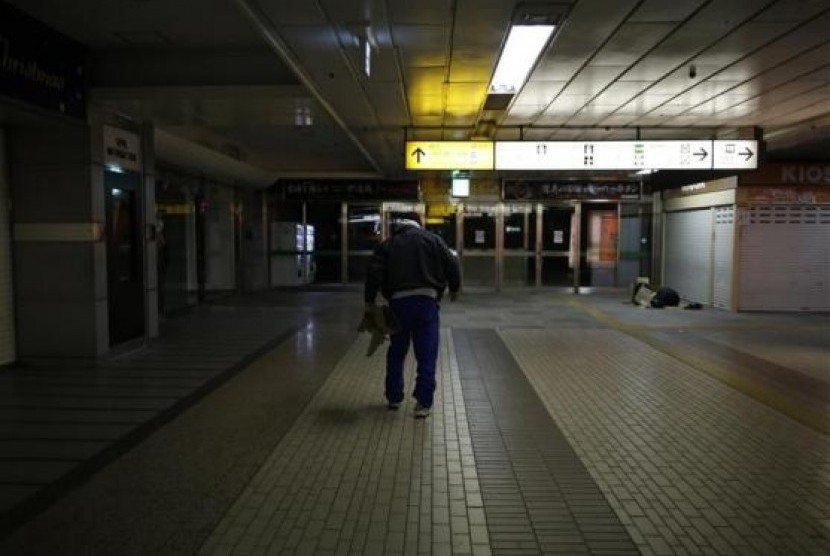REPUBLIKA.CO.ID, SENDAI - Seiji Sasa hits the train station in this northern Japanese city before dawn most mornings to prowl for homeless men.
He isn't a social worker. He's a recruiter. The men in Sendai Station are potential laborers that Sasa can dispatch to contractors in Japan's nuclear disaster zone for a bounty of $100 a head.
"This is how labor recruiters like me come in every day," Sasa says, as he strides past men sleeping on cardboard and clutching at their coats against the early winter cold.
It's also how Japan finds people willing to accept minimum wage for one of the most undesirable jobs in the industrialized world: working on the 35 billion USD, taxpayer-funded effort to clean up radioactive fallout across an area of northern Japan larger than Hong Kong.
Almost three years ago, a massive earthquake and tsunami leveled villages across Japan's northeast coast and set off multiple meltdowns at the Fukushima nuclear plant. Today, the most ambitious radiation clean-up ever attempted is running behind schedule. The effort is being dogged by both a lack of oversight and a shortage of workers, according to a Reuters analysis of contracts and interviews with dozens of those involved.
In January, October and November, Japanese gangsters were arrested on charges of infiltrating construction giant Obayashi Corp's network of decontamination subcontractors and illegally sending workers to the government-funded project.
In the October case, homeless men were rounded up at Sendai's train station by Sasa, then put to work clearing radioactive soil and debris in Fukushima City for less than minimum wage, according to police and accounts of those involved. The men reported up through a chain of three other companies to Obayashi, Japan's second-largest construction company.
Obayashi, which is one of more than 20 major contractors involved in government-funded radiation removal projects, has not been accused of any wrongdoing. But the spate of arrests has shown that members of Japan's three largest criminal syndicates - Yamaguchi-gumi, Sumiyoshi-kai and Inagawa-kai - had set up black-market recruiting agencies under Obayashi.
"We are taking it very seriously that these incidents keep happening one after another," said Junichi Ichikawa, a spokesman for Obayashi. He said the company tightened its scrutiny of its lower-tier subcontractors in order to shut out gangsters, known as the yakuza. "There were elements of what we had been doing that did not go far enough."


